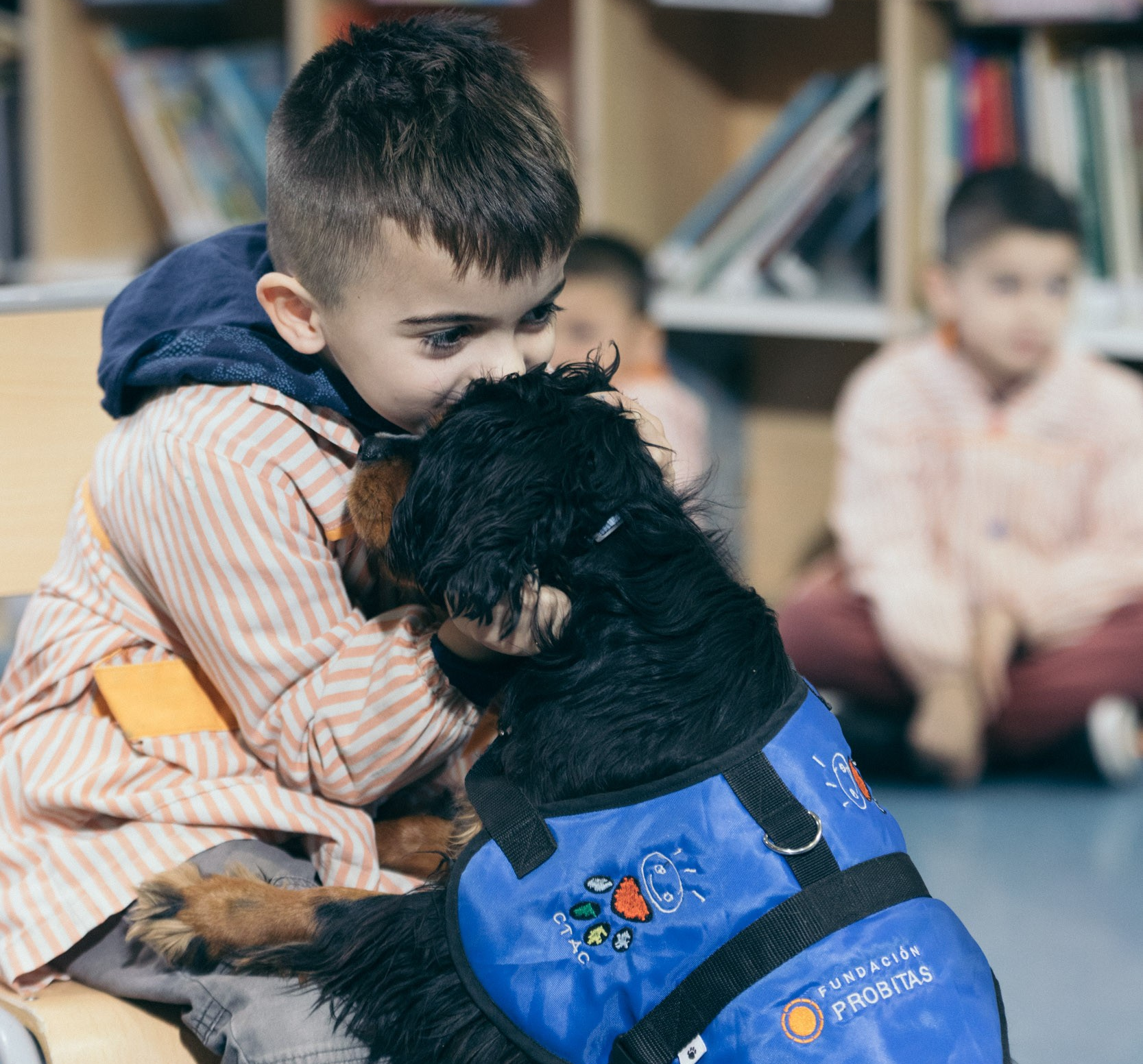Vall d’Hebron and Probitas study the benefits of educational interventions with dogs for five-year-old children
Vall d’Hebron and Probitas study the benefits of educational interventions with dogs for five-year-old children
January 21, 2025
The Vall d’Hebron Research Institute (VHIR) and the Probitas Foundation have entered into a collaboration agreement to conduct a study on how educational interventions with dogs can contribute to enhancing emotional self-regulation and social skills in young children. The project is being carried out with five-year-old preschool children in high-complexity schools in Figueres (Girona).
In recent years, numerous studies have demonstrated that dog-assisted therapy can reduce stress, improve mood, and promote the development of social skills. Building on these findings, the Probitas Foundation launched the “Potes Amigues” program in 2023, which integrates educational interventions with dogs in high-complexity schools to help vulnerable children at risk of social exclusion improve their social and emotional skills. “We are seeing that interaction with dogs is a powerful social catalyst, as it enhances children's behaviour and adaptability to new situations. Developing these executive functions from early childhood is crucial for academic success,” says Dr. Anna Veiga, Director of the Probitas Foundation. Additionally, children improve their communication skills, learn to be more responsible, and increase their empathy.
The importance of scientific evidence
For the 2024-25 school year, Vall d’Hebron has joined the program to provide scientific evidence of these benefits. The study, led by Dr. Josep Antoni Ramos Quiroga, Head of the Psychiatry Service at Vall d’Hebron University Hospital and the Psychiatry, Mental Health, and Addictions group at VHIR, and a researcher at the Mental Health CIBER (CIBERSAM), includes 76 preschool students from Salvador Dalí school and Anicet de Pagès school in Figueres. Over 16 weeks, specialized technicians from Dog-Assisted Interventions SL (CTAC-Girona) conduct weekly sessions involving various activities.
To assess the impact of the “Potes Amigues” program, surveys are administered to the children’s teachers before and after the intervention. “We aim to demonstrate that these sessions improve children’s social, emotional, and behavioural skills in the classroom, and even potentially prevent more serious or disruptive pathologies” explains Dr. Silvia Muñoz, a researcher in the Psychiatry, Mental Health, and Addictions group at VHIR. The team hopes these improvements will extend beyond the academic realm, enhancing the overall quality of life for the students.
Between 2017 and 2020, Vall d’Hebron and the Probitas Foundation collaborated to scientifically validate the benefits of animal-assisted interventions in specific populations, such as children with Fetal Alcohol Syndrome. These studies found that, thanks to this therapy, patients improved their communication, better self-regulated, and controlled their impulsivity.
Through this new collaboration, the goal is to generate scientific evidence on the effects of educational interventions with dogs in the school environment. The results will also help Probitas validate the program’s benefits and promote its implementation in more schools, aiding the emotional and social development of vulnerable children at a crucial stage in their growth.

